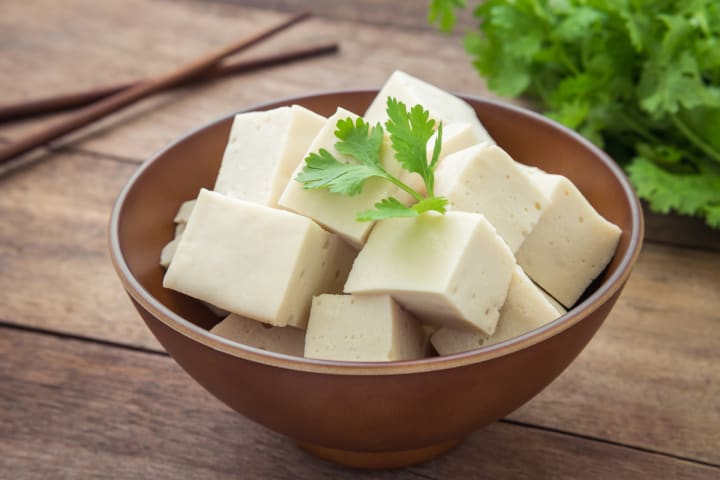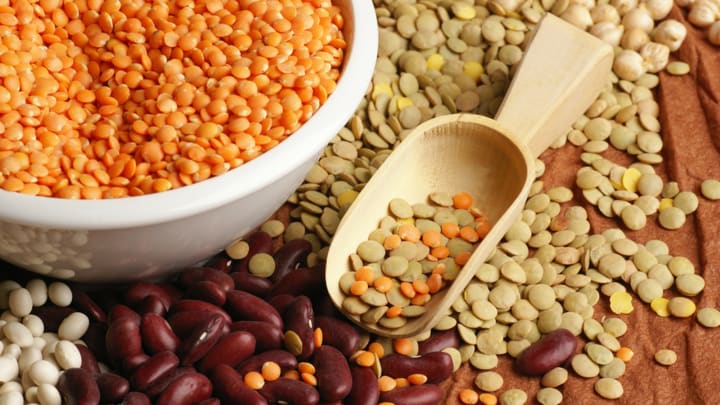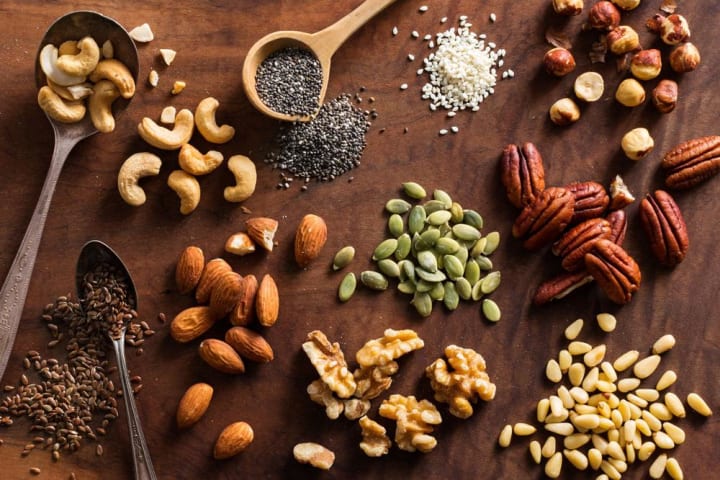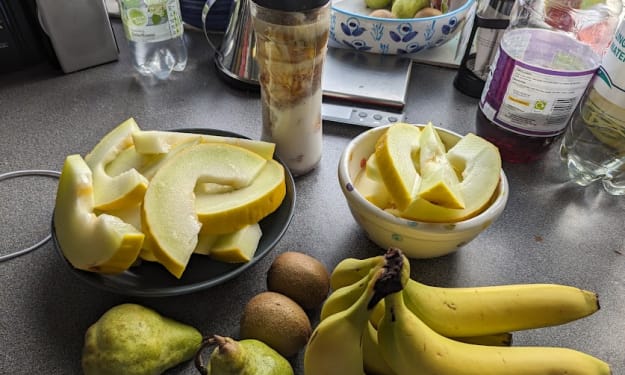Becoming Vegan
Why and How I Became Vegan, and How You Can Go About Doing the Same (If you want to)

I want to start off by saying that this is my personal story of how I became vegan, and the advice I give is totally based off of my experience, so I am by no means an expert.
I've been vegan for close to three years now, and it didn't start off like many other people's journey may have. During the summer before my junior year of High School, I had my wisdom teeth removed, and during the recovery period I physically wasn't able to eat meat, simply because it caused too much pain. What I could eat, though, was cooked vegetables and smoothies (may or may not have gotten addicted to smoothie bowls).
When I got the all clear to go back to eating normally, I realized that I didn't really miss meat. I had become accustomed to living without it, and so I decided to give being vegan a try.

I had no expectations set, meaning I didn't say to myself that I'd do this for certain period of time. If I felt uncomfortable or it came to a point of not wanting to do it anymore, I wouldn't be hard on myself for "quitting", if you will.
After some time, I knew that this was something I wanted to continue, as I was thoroughly enjoying being vegan, and everything it had to offer. Being in Culinary Arts for two consecutive years at my High School, I brought those skills to the test and experimented with different foods at home and was blown away by what you could do with certain fruits and vegetables.
I dove deeper into different cuisines, such as Indian and Italian, and discovered loads of different recipes that were completely veggie based or had alternatives to traditional dishes that originally called for meat.
I was happier with the options I had to chose from, healthier because of the greater intake of essential vitamins and minerals provided by fruits and vegetables, and overall glad I made the switch.

I do want to talk about a couple questions I commonly get from people about being vegan, and then I'll get into a more "How To" guide if you are interested in becoming vegan, of simply want to add more plant based foods into your diet.
1. Oh you're vegan, so does that mean you hate people who eat meat?
This question has been asked in many different ways by many different people, but this is the most generalized form of it. I personally don't despise people who chose to eat meat, because it's a choice made by another person, and that is something out of my control. I also still wildly respect meat, which comes as a shock to some people, and that may have something to do with my cooking background as I worked with it almost every day. Meat is such a nutrient dense food, and can bring about tastes and aromas unparalleled, but the culinary aspect of it is not what my viewpoints are based upon
What I do care about is the current production of meat and over consumption of it. Prior to any industrial developments, hunting was what brought about a cut of meat, and this took an immense amount of skill and effort by an individual or group. Being dense in nutrients, it provided for the hunter(s) and was essential for their lifestyle. In today's world, though, where we no longer rely on hunting to provide food, meat is taken for granted and is consumed in greater quantities more regularly by those who don't actually need it.

Livestock is also readily available, but the work of slaughtering and butchering is done by industrial means, taking away from any balance that nature originally intended and the art that comes with hunting. Along with this overproduction comes waste, an excessive amount, degrading not only the lives of the animals that were used in production, but the resources, such as food and water, that were provided to sustain them. The waste is high in number with sustaining livestock alone, but even higher when including the resources needed for proper function of the factories that actually produce the meat for consumption.
I am not suggesting the elimination of meat producing facilities, as that implies the removal of a balance which would not be sustainable. Instead, try to be more conscious of how much meat you consume, and when buying meat, opt to buy from local farms that produce meat at a more sustainable rate. Every small action makes a big difference.
2. Wait, how do you get enough protein?
There are a surprisingly large number of vegan protein options out there, including plant based protein powders and tofu/tempeh, and less obvious choices like beans, nuts and seeds.

I personally use Vega protein as I've found that they have some of the cleanest ingredients and best tasting products (their chocolate protein powder is incredible). There are a lot of other options if that one doesn't work for you, like Orgain or Amazing Grass, that offer the same essential nutrients for proper daily function.

Tofu is something that you definitely have to get used to, and there are a ton of different options to chose from, all of which offer varying levels of firmness, flavor options, etc., but you should follow some recipes if you are going to try it for the first time. This will make sure you don't just guess on how to cook it, and ruin your first impression of it.
Once you get accustomed to the texture, it's fine, as the flavor isn't strong at all and it tends to pick up the flavor of whatever you cook with it. For a while, I did a simple pan frying of it with paprika and cinnamon, and then drizzled a little honey over it while cooking to caramelize the outside and add a little sweetness to it. It worked for me and got me used to eating it, but of course it may not work for you.

While they are not a protein isolated food, their nutrient balance makes them favorable in terms of including them as a protein substitute, as they keep you full and provide healthy energy. They should be paired with other foods that have protein in them, but are not completely isolated, and you'll easily reach your protein needs while also giving your body the nutrients it needs for proper function.

Similar to beans, nuts and seeds are fantastic in terms of providing indirect protein, but should not be relied upon for reaching your needs, as although their protein amount is high, their fat count is higher. Pairing them with other foods that have indirect protein makes it easy to reach your protein goal for the day or for a single meal. There are also a lot of different nuts and seeds that you can experiment with, like pumpkin seeds, which I have discovered I love, or hemp seeds. Put them on salads, in Buddha bowls, Acai bowls, or even make your own nut/seed nutter (which is easier than you think).
3. How do you stay full?
A common misconception about being vegan is that we eat substantially less food than other people, which has some truth but is mainly false. The "eating less" part of being vegan is that the foods taken in don't have a high caloric density, specifically fruits and vegetables. Of course, there are vegan foods that are extremely calorie dense, but the raw foods are dense in nutrients.
Eating vegetables, fruits, nuts and seeds keeps you fuller because of the volume of the foods, and the slower digestion due to the balance of nutrients. A thousand calorie smoothie is pretty easy to make, but it doesn't necessarily keep you full for long. A thousand calories of vegetables, though, is a massive amount and will take a long time for your body to digest.
Being vegan isn't just salads, as of course only lettuce and tomatoes won't keep you full. It's adding things like roasted butternut squash, pickled beets and sunflower seeds that will keep you satisfied.

I could go on with a longer list of questions I normally get, but I'll keep it to those three, as they are the main questions from people inquiring about this way of eating.
I want to give a short "How To" for those wishing to give being vegan a shot, or just want to reduce their meat intake and add in some more fruits and vegetables to their diet. Again, this is how I went about doing it and it worked for me, but my journey and yours will look quite different.
1. Ease into it
It's easy to just stop eating meat, but hard to keep that a constant as it has been part of your life for some time, and the withdrawal effects will most likely draw you back into your previous eating routine. Instead of full-sending it, begin to lessen the meat you eat and increase the unprocessed foods. If you normally eat meat three times a day, decrease it to twice or even once a day and substitute other meal options. This will add variance into your diet and will open your eyes to new foods that will keep you just as satisfied.
Instead of a bacon and egg sandwich, try oatmeal with blueberries and nut butter, or avocado toast with fruit on the side. Choose what meal(s) you want to change, and then overtime if going completely vegan is something you want to do, change the last meal(s) to plant based. It's a long term change, not a quick fix. The slower the change, the easier it is to adapt.
2. Explore Foods
Please, please, please don't just do salads. Although they can be interesting, try bowls, soups, wraps, etc. There are plenty of options to chose from, and limiting yourself to just salads will cause you to quit sooner rather than later because you're lacking flavor. Of course, it is preference, but for those who don't usually eat copious amount of fruits and vegetables daily, try Mediterranean dishes that include hummus and pita bread, or Middle Eastern inspired dish with Baba Ghanoush, rice, and falafels. Make it interesting, and you'll soon discover some delicious meals that are totally meat free.
3. Plan ahead
If you're planning an outing to a restaurant with friends or family, don't just guess that the place you're going will have vegan options. Do some research ahead of time, see what they have that can be made without meat/dairy. A lot of the time, you can get a salad, and add a bunch of side dishes that are completely vegan, this is what I do usually.
The app HappyCow uses your current location and finds vegan friendly restaurants near you, so if you're concerned about being on vacation someplace or traveling for work and not having any place that suits your needs, it is extremely useful. Enter in your destination ahead of time and make a list of places that accommodates both your eating habits and others who may not be in the same boat as you.

Those are the main pointers I can offer in terms of making the transition easier, easing into it, exploring foods and planning ahead. If going completely vegan doesn't work for you, become a reducetarian (yup, it's a thing) and reduce the amount of meat you normally eat. It's about making adjustments based on your personal needs, and not being to hard on yourself if you didn't reach the goals you initially made.
Everyone's journey is different, and this is simply my own experience with becoming vegan. I fell in love with it, and found that I enjoy food much more than I did when I ate animal based products. I hope that my sharing will inspire you to make a change for not only yourself, but for the overall well being of the Earth. Every thing helps, even if it's choosing locally sourced meat or just limiting your intake of meat.
About the Creator
Andrew Uncles
My name is Andrew Uncles, I'm 19 years old and love writing, poetry and novelist writing to be specific, photography, music, basically any genre, cooking, fashion- anything art related really.






Comments
There are no comments for this story
Be the first to respond and start the conversation.